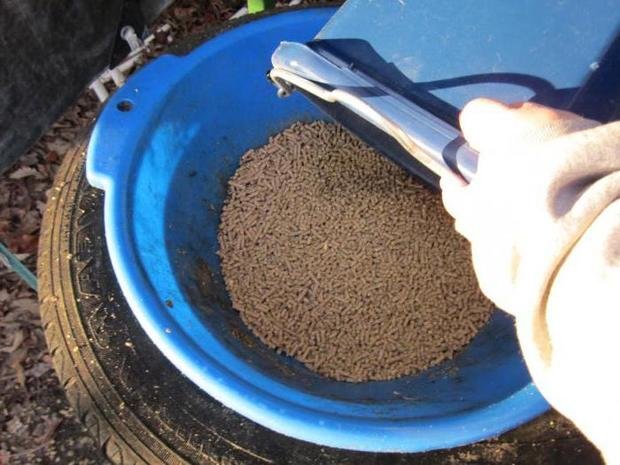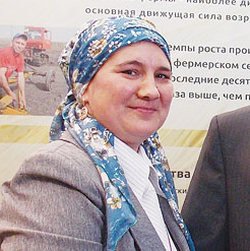Unobtainable additive: Tatarstan farmers complain of sugar mills
Sugar beet waste for winter feeding of cattle is given to livestock breeders free of charge, but in Tatarstan — only for big money and in batches of 20 tonnes
Owners of small farms in Tatarstan have complained that they cannot buy beet pulp — the fodder additive to maintain milk yield in winter. It is the waste product from sugar mills, in other regions livestock breeders are given it away free of charge. However, in our region, where there are as many as three sugar mills, the owners of the peasant farm enterprises cannot obtain beet pulp. Almost all of it is exported — in Europe these Russian products are highly valued. The mills do not refuse Tatarstan farmers at all, but offer to buy the pulp at exorbitant prices and at least 20 tonnes, which is beyond the capacity of small farms. Carrying this additive from neighbouring regions is not an option — transportation to Tatarstan is very expensive. In addition, it is often simply not available. It is profitable to sell pulp abroad, and in the domestic market, according to the interlocutors of Realnoe Vremya, it has grown greatly in price.
More than 90% of pulp is sold abroad
In Tatarstan, there are three sugar factories — Buinsky, Zainsky (produces 50% of sugar in the region and is in the top 5 largest in Russia – editor's note) and Nurlatsky. The first sells beet pulp only through Bely Bars trading house, to other two farmers they can apply directly. However, all three have restrictions on the volume of shipped products — only more than 20 tonnes, so small farms that require many times less pulp are forced to apply to neighbouring regions and bear large shipping costs.
According to Diana Truseneva, the owner of ecofarm Ya Lyublu, Laishevskiy district, the problems with pulp purchase happen not every year, but often coincide with price rises for the dollar: ''As soon as the currency exchange rates changes, it becomes impossible to buy sugar beet pulp, which is so necessary for animal nutrition in housing season, when there are no lush grass.''
According to the interlocutor, the publications of specialized agricultural portals pay attention to the increase in exports of the feed after rising prices due to currency fluctuations, and farmers become prisoners of the situation.
''In general, the demand for pulp is stable and high. The main buyers of this product of Russia are European countries (Latvia, the Netherlands, Spain, Italy and others) and Turkey,'' says Dmitry Gordeev, the press secretary of the Federal State Funded Research Institution ''FNC of Food Systems named after V.M. Gorbatov''. ''At the same time, over the past three years, Russia has seen both a decline and a rise in its production: in 2016, Russia produced 8,04 million tonnes of pulp, which is by 35,6% higher than the production volume of the previous year. Moreover, the main share of the production — 55,6% — accounted for the Central Federal District.
Already in 2017, the country exported more than 1 million tonnes of this product in the amount of $134 million, the source refers to the data of Rosstat.
''The shipment of beet pulp for export is carried out due to the cheap domestic price of gas. Worldwide, energy resources are expensive, no one dries pulp using gas (mostly with steam) and does not export it in such quantities as Russia does. At the same time, the export of the product is limited by the infrastructure capacities: its sales abroad are on the residual principle, when the capacities and cars for grain are released. Nevertheless, more than 90% of the produced pulp in the country is exported to the foreign market,'' says Gordeev.

''The pulp turns out to be quite expensive''
The nearest region where one can freely buy beet pulp, according to Truseneva, is Lipetsk Oblast. There are four plants, and, as previously reported by the local ministry of agriculture, other two are going to operate soon. The region is the second largest sugar producer in Russia.
Farmer Minsina Latypova from the Vysokogorsky district (Latypovs family farm) reported that this year they have refused to purchase sugar beet pulp. Previously, she used to turn to the Ulyanovsk sugar factory: ''They give it free of charge — it's waste, but transportation with delivery is very expensive.'' Latypova was surprised to find out that Tatarstan plants sell these production wastes.
Latypova confirmed that the pulp has a good effect on the quality of milk, but the form of production in the Tatarstan plants does not suit her: ''Where to get it? In Buinsk, they do not give it [non-granulated pulp], they evaporate it and sell dry. It becomes more expensive, plus before you feed the cattle, it needs to be soaked in hot water.''
It is unprofitable for a big livestock, the interlocutor of the edition explains — additional hands are necessary for this work alone. This year, the pulp is replaced with beets, and they also buy molasses in Kirov Oblast.
 In the future, Latypova plans to bring the pulp again, but she liked the experience of buying molasses: ''Pulp turns out expensive. They bring molasses for 37,000 – it is together with shipping and everything. Molasses is sweeter, less is needed, and pulp was given a lot.''
In the future, Latypova plans to bring the pulp again, but she liked the experience of buying molasses: ''Pulp turns out expensive. They bring molasses for 37,000 – it is together with shipping and everything. Molasses is sweeter, less is needed, and pulp was given a lot.''
Another farmer from the Novosheshminsky district noted that earlier sugar factories gave away pulp for free – ''as garbage'': ''Now it has been advertised that this is super food, super food for cows, and they are making money on this, now no one wants to grow cows, everyone wants to sell this pulp.'' The interviewer noted that the logistics costs make the purchase of pulp too expensive.
''Now, when buying from 20 tonnes, the price is 12,5 rubles per kg, before that, it cost 8 rubles''
The correspondent of Realnoe Vremya contacted the sales departments of the Tatarstan sugar factories. Nurlatsky and Zainsky informed they have no pulp in stock. ''We are out of it,'' replied both companies and offered to wait until September, when they have the new crop. Bely Bars trading house, which represents the interests of the Buinsky sugar factory, were ready to ship a batch of 20 tonnes: ''It is one truck, the price is 90,500. We do not sell in smaller volumes.''
 ''Trading houses sell only 20 tonnes, but I need 3 tonnes until the next harvest — for six months. We have 35 goats, 4 cows. It would be possible to buy if not a rise in dollar rate: now when you purchase 20 tonnes, the price of 12,5 rubles per kg, before that we bought for 8 rubles, in the early fall — for 6 or 7,'' said Truseneva.
''Trading houses sell only 20 tonnes, but I need 3 tonnes until the next harvest — for six months. We have 35 goats, 4 cows. It would be possible to buy if not a rise in dollar rate: now when you purchase 20 tonnes, the price of 12,5 rubles per kg, before that we bought for 8 rubles, in the early fall — for 6 or 7,'' said Truseneva.
The interlocutor has no possibility to cooperate with farmers working nearby: ''It's expensive, many people feed in the old way – with what they can get, but the pulp is irreplaceable,'' she says.
The ministry of agriculture of the republic did not have time to prepare an operational comment on the request of Realnoe Vremya.
P.S. The day after the article was published, our publication received a response from the ministry of agriculture and food of the Republic of Tatarstan:
''The department of food market development has not received such appeals from farmers. Beet pulp in autumn period was sold by all sugar factories, both raw and granular. Currently granulated sugar beet pulp is sold in wholesale by Buinsky Sakhar PLC.
The pulp produced in the Republic of Tatarstan is sold both on the Russian market and is exported. Export volumes will depend on the current market conditions and technical capabilities of the plants. Currently, not all plants have the possibility to granulate the produced pulp, therefore, these volumes of products will be supplied to the Russian market.''